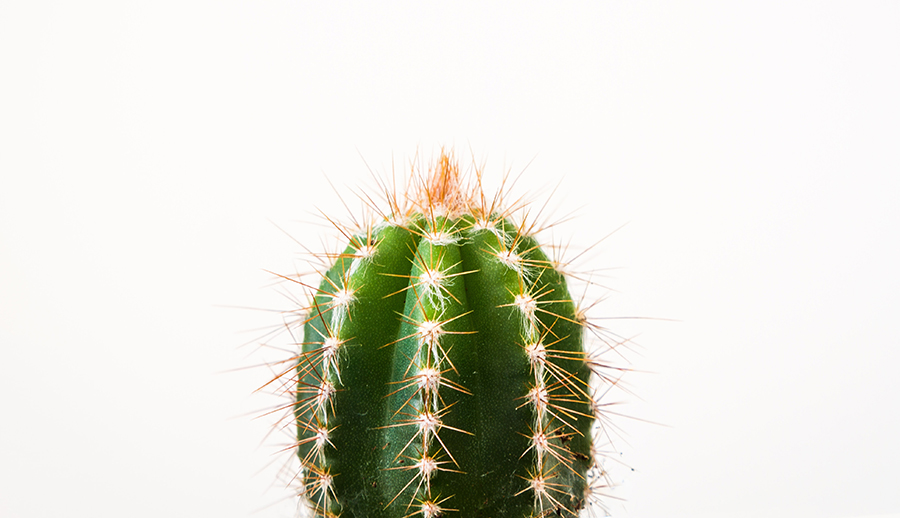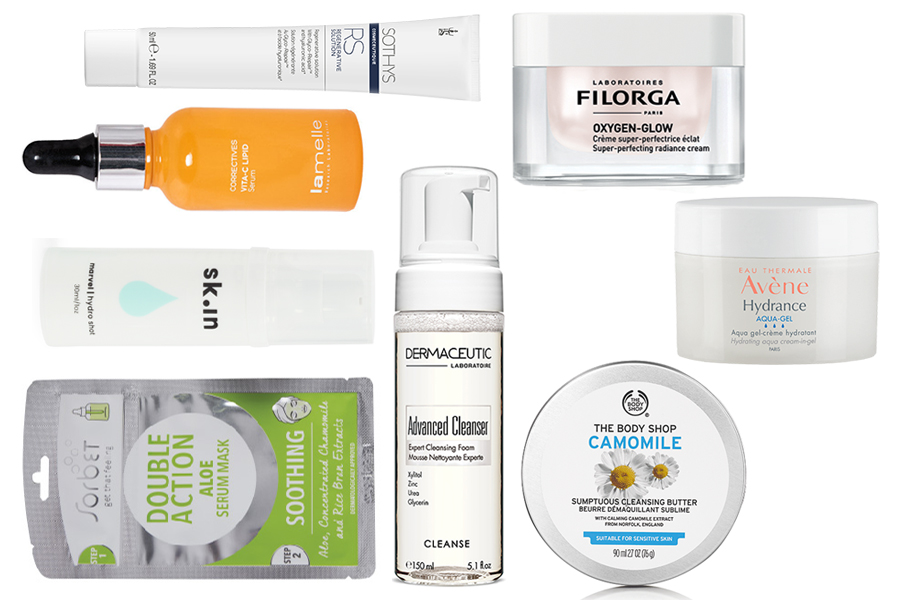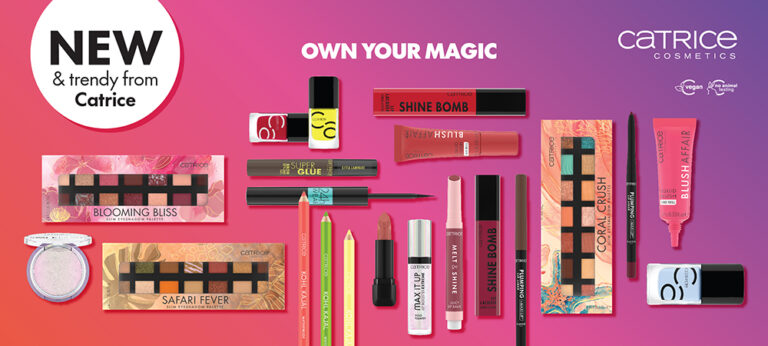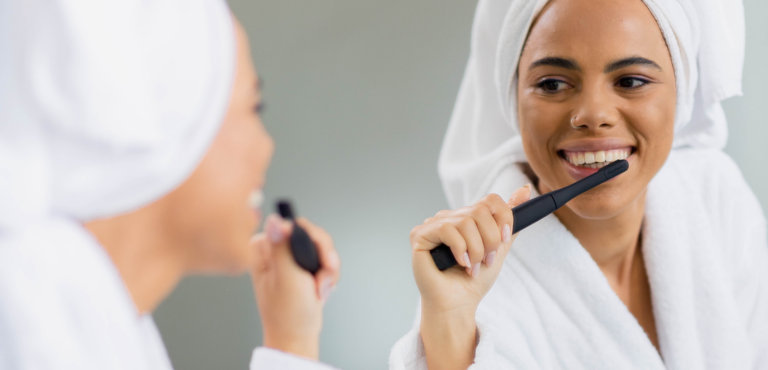
Skin sensitivity is on the rise, and with that, comes the need for gentle skincare products that manage and treat skin concerns without causing irritation, redness or discomfort. There are many different factors that cause and exasperate sensitivity and in order to understand them, we put a few questions to the experts. Here’s what they had to say.
What are some of the causes of skin sensitivity?
“You may have a genetic pre-disposition to skin sensitivity or you could acquire sensitivity due to lifestyle, environment, sensitising ingredients, medication used (even decongestants), diseases, ageing and the list goes on,” says Karen Bester, medical trainer at Lamelle Research Laboratories.
Many chronic and other medications such as oral contraceptives may have an effect on the skin’s oil production, which could have an impact on sensitivity. Some harsher medications like cortisone and Isotretinoin (used to treat acne) may increase the skin’s photosensitivity as well as cause dryness, flaking and irritation.
How exactly does the environment contribute to sensitivity? According to Sonette Donker, Skin Specialist at Dermaceutic, “Environmental factors are normally the biggest triggers, i.e. heating, air conditioning, medication, sun exposure, harsh cold/windy conditions to name a few. When a skin becomes dehydrated it often becomes sensitive as a result of an impaired barrier.” And with that being said, we all know that indoor heating and cooling systems as well as winter weather are major contributors to dehydration.
And what about our diets? “Dietary allergies can often first become apparent in skin reactions and breakouts. Gluten allergies and lactose intolerance are prominent dietary concerns that often affect the skin and once an elimination diet is implemented, skin sensitivity is often reduced significantly. The regular intake of water, eating fresh fruits and vegetables and ensuring that your diet contains sufficient fibre assists a great deal in maintaining healthy skin, while a high fat and processed foods diet often result in skin irritation, which would be amplified by lack of water intake,” says Helene Cloete, brand manager for Sothys and NUXE.
Which skincare ingredients should you avoid if you have sensitive skin?
“Exfoliating and granular scrubs. Applying too frequently and too high concentrations of retinol, vitamin C, alpha hydroxyl and beta hydroxy acids. These ingredients can be used on sensitive skin – as long as the concentrations are appropriate and they are not applied too frequently,” says Dr Alek Nikolic, founder of sk.in.
Sonette also recommends staying clear of “artificial fragrance and artificial colour.” In fact, whether you have sensitive skin or not, it’s best to avoid these ingredients altogether.
And don’t forget about harsh cleansers or soaps. “Top of the list will always be cleansers that contain soap and that do not have a pH that is skin-compatible,” says Karen.
Helene suggests, “Abrasive products like microdermabrasion (professional and home care) should be avoided. A high content of alcohol in cosmetic products is often associated with skin reactions, as alcohol dehydrates the skin, leaving the barrier function impaired. Always consult with a skincare professional before changing your skincare regimen if you have concerns about sensitivity.” A lot of people don’t realise that many toners contain alcohol. If you’re using one, be sure to check the ingredients list.
Which ingredients are good to use on sensitive skin?
“Our favourites are hyaluronic acid, which promotes optimal hydration, Omega fatty acids, which help to restore a fragile skin’s barrier function and growth factors, that help the skin repair itself,” says Helene.
“At Lamelle we will always suggest ingredients that contain skin compatible lipids. We understand that sensitive skins usually have challenges with their lipid-bi-layer (the oily layer in between skin cells) that will be damaged or the production might be impaired. This then removes the barrier that prevents the penetration of molecules into the skin that are seen by the skin as foreign. In turn these cause the skin to respond with inflammatory reactions that could be anything from just a little redness to full blown swollen, red and itchy skin. Any inflammation will decrease the production of lipid-bilayer and so begins a vicious circle if irritation, dryness, sensitivity and constant reaction – to ‘absolutely everything’.
The first step for us it to always use an ingredient called Ceramide P. Ceramide P looks exactly like the molecules found in the lipid-bilayer. It will replace the structure of the lipid-bi-layer, without any oily residue so it can even be used on an oily skin. We also formulate our sensitivity range, Serra, with peptides ingredients to calm and sooth the irritation and inflammation. Returning the lipid structures inside the skin will allow your skin to recover. This means that your skin can, with the use of Serra, normalise and you may be able to use all kinds of ingredients on your skin without the fear of reactions,” says Karen.
Are there any lifestyle factors that can increase your skin’s sensitivity?
There are, in fact, several. “An increased intake of caffeine and alcohol, as it dehydrates the body and it is stimulating on the system which will make the skin dehydrated and sensitive. Long, international flights due to the lack of sleep and dry air. Lack of sleep due to an increase in free radicals and decrease in natural skin hydration. Sun exposure without SPF. Not applying a moisturiser to the skin,” says Sonette.
But sadly that’s not all! According to Karen, “One of the biggest contributing factors to sensitivity is stress. Increased stress levels increase the reactivity of skin.” We are a stressed out society, so it should come as no surprise that so many of us struggle with sensitive skin.
Dr Alek highlights a few other factors you may not have known of:
Sun tanning;
Chlorine pools; frequent or long hours in the pool;
Climate: in particular cold and dry weather;
Environment: sometimes working in a dusty or humid environment can predispose your skin to become sensitive;
Skin products: excessive cleansing, hard granular scrubs, excessive application of active ingredients.
Is there a way in which people with sensitive skin can reap the benefits of active ingredients like retinol or vitamin C without these ingredients worsening their sensitivity?
Because let’s face it, other concerns like hyperpigmentation, breakouts, dullness and wrinkles will be a concern for many people with sensitive skin.
Karen says, “Generally, these ingredients would not be suggested in the treatment of sensitivity. However there are forms of retinoids and vitamin C that would be very beneficial on sensitive skins. I would allow a few weeks of recovery though and then introduce these ingredients.
At Lamelle we have a form of vitamin C, a lipid soluble ester, that is very mild on skin but still has phenomenal recovery, stimulation and off course anti-oxidant effect on skin – Correctives Vita C Lipid Serum contains this version of vitamin C. Ascorbic acid, the active form of vitamin C, and the first choice generally, would have a high risk of adding to irritation on skin that is already sensitised.
The form of vitamin A (retinoid) that we use at Lamelle is also something that you could definitely add to your routine even if your skin is sensitive. This analogue does what medical grade retinoic acid will do, but it does not activate the reaction that will cause sensitivity, dryness and itching that is generally associated with retinol use.”
According to Sonette, the key lies in introducing products gradually. “They must start with a low concentration and increase the concentration over a longer period of time. Over time their skins will get stronger and will be able to handle the more active ingredients. As soon as the barrier of the skin is improved, it will tolerate active ingredients better.”
“There are a number of ways to successfully use active ingredients when one has sensitive skin,” says Dr Alek. “The first is to determine if the skin is genetically a sensitive skin type or has become sensitive over time. If your skin was ‘normal’ and gradually becomes sensitive it is most probably due to a comprised skin barrier. Here the approach would be to stop all topical products and to first repair the outer skin barrier by only using:
Gentle cleanser specific for sensitive skin types;
Serum high in hyaluronic acid and ceramides e.g. sk.in marvel;
Skin barrier repair cream that contains hyaluronic acid and ceramides;
A good SPF indicated for sensitive skin types.
Once the skin has settled then a slow introduction of active ingredients can take place. If you have a genetic sensitive skin type then active ingredients can still be used but it will take a ‘trial and error’ approach. Look for lower concentrations of retinol and vitamin C and introduce them slowly to your skin regime as follows: apply once a week for 3 weeks, then twice weekly for 3 weeks. If no reactions occur then one could test 3 times weekly applications.”
So there you have it – sensitivity does not mean aqueous cream for the rest of your life! Because of the major rise in sensitivity, skincare brands have taken note, and today, there is a bigger variety of top quality skincare for sensitive skin than ever before.
Here are a few we would recommend:

Sothys RS Regenerative Solution (R795.00)
Universal treatment (serum/mask) to hydrate ultra-weakened skin.
Lamelle Correctives Vita C Lipid Serum (R849.00)
A high-potency Vitamin C Serum that brightens and hydrates. Suitable for most skin types, except oily, acne-prone skin. It is especially beneficial for those with dry, sensitive, and intolerant skin.
sk.in marvel (R1050.00)
An active serum specifically formulated to deliver a hefty hydro shot to counteract dehydrated skin, improve skin barrier health, protect against environmental damage and prevent and reduce signs of ageing such as fine lines and wrinkles.
Sorbet Double Action Soothing Aloe Mask (R60.00)
This soothing sheet mask is filled with the goodness of aloe, chamomile and rice bran extracts.
Dermaceutic Advanced Cleanser Expert Cleansing Foam (R640.50)
An exclusive combination of high performance cleansing agents, selected for their optimal skin tolerance properties, and fused with a powerful purifying active to remove makeup and excess sebum.
Filorga Oxygen-Glow Super-Perfecting Radiance Cream (R725.00)
A super perfecting moisturiser that diminishes imperfections and boosts the skin’s radiance.
Avène Hydrance Aqua-Gel (R349.00)
An innovative 3-in-1 hydrating aqua gel-in-cream that can be used as a daily moisturiser, sleeping mask and an eye mask.
The Body Shop Camomile Sumptuous Cleansing Butter (R230.00)
Formulated with camomile extract from Norfolk, England to help soothe the skin while gently washing away make-up and impurities from the skin.





2 Responses
These are wonderful tips and suggestions, thank you.
I have very sensitive skin. Used Almay and now dont know what to use.